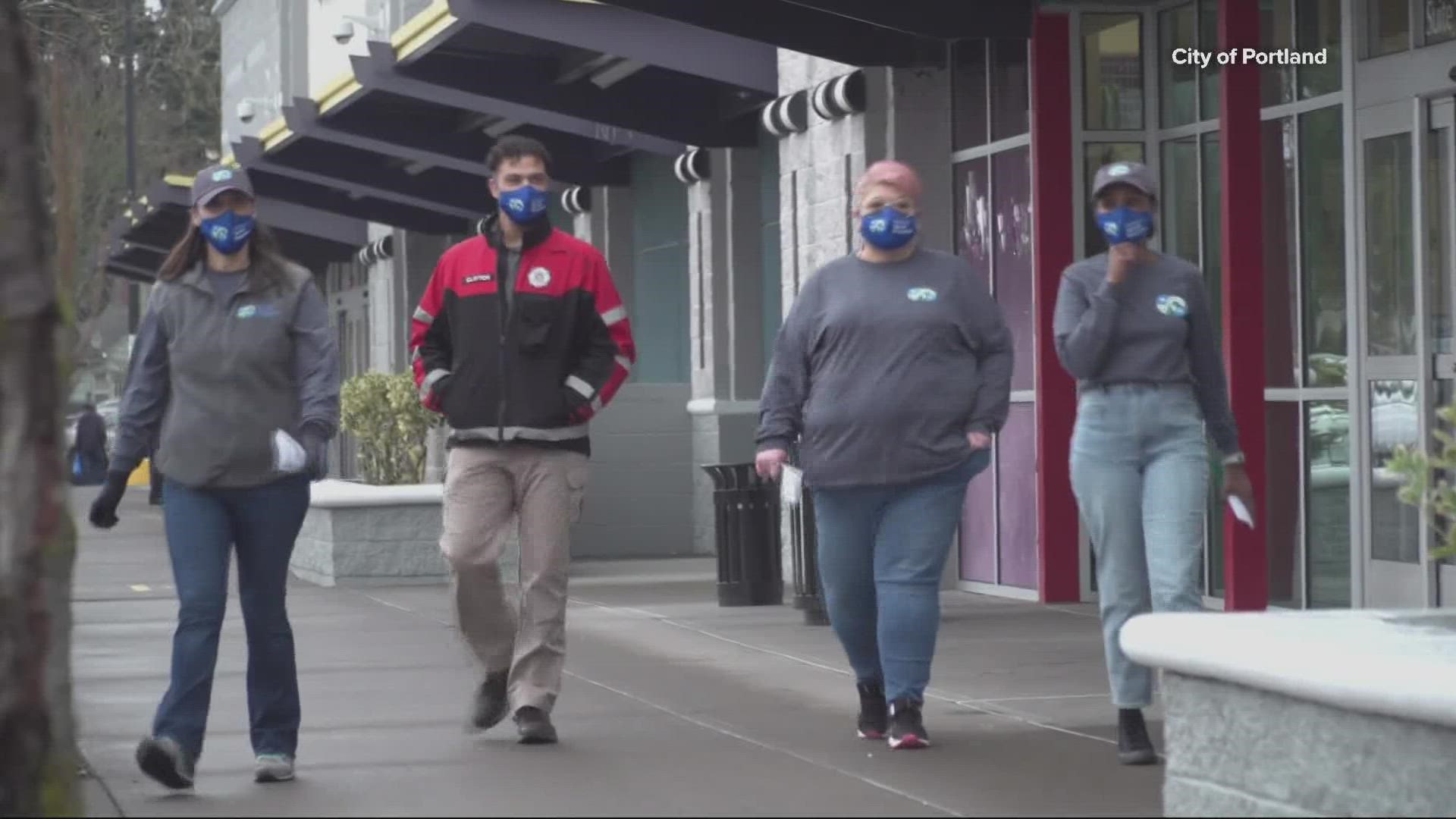PORTLAND, Ore. — More than six months after launching it as a limited pilot project with an uncertain future, city commissioners this month seem poised to guarantee the citywide expansion of Portland Street Response (PSR), with the long-awaited shift set to take effect next spring.
Portland City Commissioner Jo Ann Hardesty on Monday unveiled her latest pitch to expand PSR, a policing alternative that, instead of an armed officer, sends a crisis counselor and a paramedic to calls involving mental health and addiction.
“We are asking for a commitment because we've certainly heard it all over the city, whether it's from business owners, whether it's from houseless community members,” Hardesty said. “We've heard all over the city that every community wants Portland Street Response.”
Hardesty plans to introduce the roughly $1 million expansion package later this month, during the regular city budget adjustment process known as the “fall bump”. As part of the proposal, she’ll ask council to approve hiring 13 full-time employees: four crisis medics, two mental health clinician I’s, two mental health clinician II’s, three community health workers and two peer support specialists.
RELATED: If 911 isn't the best choice, who do you call when you see someone in distress in Portland?
The hiring would start in January 2022, and the new teams, working out of three vans, would fan out citywide in March. The program, Hardesty’s staff noted, wouldn’t run 24/7. PSR teams would be available by calling 911 or the nonemergency line from 8 a.m. to 6 p.m. Monday through Thursday, and from 6 p.m. to 3 a.m. Thursday through Sunday.
Those hours, Hardesty said, were chosen based on data collected by researchers at Portland State University (PSU), who have been following PSR’s progress. They’re scheduled to present their findings at a city council work session at 9:30 a.m. Tuesday.
Hardesty couldn’t give specifics on the PSU findings Monday but said she believes her colleagues will be satisfied.
“Am I confident in the data that I will put that we will present? Absolutely,” she said.
The pitch comes months after the council this summer refused, via a split vote, to guarantee the funding for expanding the program. Commissioners Dan Ryan, Mingus Mapps, as well as Mayor Ted Wheeler, said they wanted to wait and see how PSR performed in its limited service area in and around Southeast Portland’s Lents neighborhood.
Public blowback to that decision was swift. Oregon Senator Ron Wyden and Congressman Earl Blumenauer tweeted their frustration, with Blumenauer urging the council to fully fund the program.
Hardesty was fed up then, and she's fed up now.
“I mean, when was the last time the congressional delegation in this community, the grassroots community, houseless advocates, all were saying the same thing? ‘What are you — what's wrong? You're not — what do you mean you're not expanding Portland Street Response?’” she said. “Right? The community is demanding it.”
She did concede PSU’s findings, and other data released since PSR’s launch in February, have revealed some glitches.
At a council work session last month, the program manager Robyn Burek told commissioners PSR had responded to roughly 400 calls in its first six months. That works out to roughly 3-4 calls a day. Burek noted the lower call volume was the result of a number of factors: PSR can’t respond to calls where the subject has a weapon, they can’t go into homes or private businesses and they can’t respond to suicide calls.
As a result, Commissioner Hardesty said Monday, staff are working with the city’s Bureau of Emergency Communication, which houses Portland’s 911 response system, to allocate more calls to PSR.
“We will continue to negotiate for more calls,” she said. “And as we expand in different parts of the city, we will know that community and kind of what the priority needs are.”
On Monday, KGW reached out to every sitting city commissioner. Dan Ryan, Carmen Rubio and Mingus Mapps all said they would support the expansion. A rep for Mayor Ted Wheeler’s office said in a statement:
Mayor Wheeler is supportive of the Portland Street Response program. He believes it plays a vital role in meeting the Community Safety Division’s goal of sending the right responder to the right call. He is working closely with Commissioner Hardesty to determine what the expansion might entail. He also wants to ensure that any expansion for Portland Street Response includes the Bureau of Emergency Communications so staff are trained to dispatch the right responder.
The Mayor will have more comments at tomorrow’s work session.

